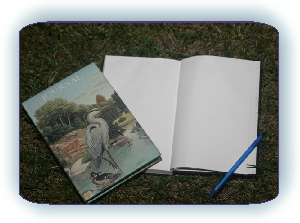I should be used to this by now, but every time I teach a Writing to Heal workshop, I’m amazed at how profound are the results of some simple writing exercises. Last Saturday, I taught such a workshop, and all the attendees were also surprised at how structure provides the opportunity for creativity and depth.
It all started when I was in my 20’s living in New York City. I took a series of workshops (called The Intensive Journal) from Ira Progoff. Wisdom came out of me I didn’t know I had! Since then, I’ve come to realize that Progoff is the grandfather of all journaling or writing-to-heal methods: writing lists, steppingstones, dialogs, letters, and so forth.
Twenty years after Progoff, I had established my private practice in Rosen Method Bodywork and was teaching writing classes at our local literary center, Writers & Books. I taught creative non-fiction: essays and memoir. By and by, I began to see that some of the same changes were happening to my students as were happening to my clients–greater access to feelings, deeper understanding of their life journey, more empowerment in next steps.
The writing to heal workshops I’ve developed use a combination of narrative, journaling and poetry techniques. Last Saturday’s workshop focused on learning particular journaling exercises and creating poetry. Some of the attendees were nervous about the idea of writing a poem, but they learned to trust that the right words would come to them if they had a place to appear. They wrote poems that allowed them to surprise themselves, both about what came up but how beautifully it was expressed. In upcoming blog posts, I’ll give you examples of simple structures you can use to become a poet.
One student was glad to be handed a worksheet on processing a feeling, because sometimes when she journals, she get overwhelmed and stuck. Now she has in her hand a tool to use to keep moving forward.
I tell my students that they are free to read aloud or not; most choose to share. One told me after the workshop, “As I wrote, I found things I was surprised by, but I didn’t feel the full impact until I said my words out loud. That’s when I knew how much bigger and deeper this was. I didn’t fully connect with it until I read it out loud.”
Something changes when one puts one’s voice behind one’s written words and is received. As one writer who works with trauma said, “Saying something about the memory does something to it” (Marian MacCurdy, in The Mind’s Eye, 2007, p. 34).
Luckily, I stumbled across decades of research that was initiated by James Pennebaker of the ability of certain kinds of narrative writing to heal. He and other researchers documented biological changes such as a boost in the immune system, lower blood pressure and stress indicators, decreased disease severity in arthritics and asthmatics, and pain relief. People who wrote “the right way” also enjoyed relief from anxiety and depression, an increase in social interactions (they even counted how many times a person smiled), and better performance on the job or at school. They got happier.
What excited me the most was that writing “the right way” for healing turned out to be the very components of good writing that I was teaching in my writing classes! Here, the two streams of my work life–bodywork and writing– had come together. They are both about healing from trauma. They are both about connecting our thoughts with our actual experience, about finding the words for our experience so that our conscious minds and the unconscious (which lives in the body) can communicate.
Next time you’re upset about something, try this: simply tell someone how you feel and have them receive it without either of you trying to fix it. Notice what happens in your body, especially if you are allowed to keep talking to an empathetic person without trying to change anything. I’ll bet you breathe better; you feel some tension relief ; you may even be surprised by new thoughts that come, new possibilities.
If you want to know what is going on in your body and mind when you put words to your experience, read the section on why words matter in my article Trauma Therapy with Rosen Method Bodywork.















